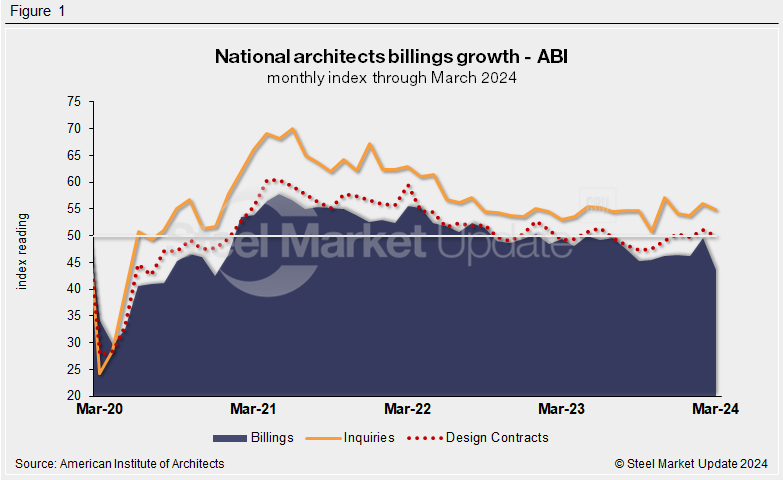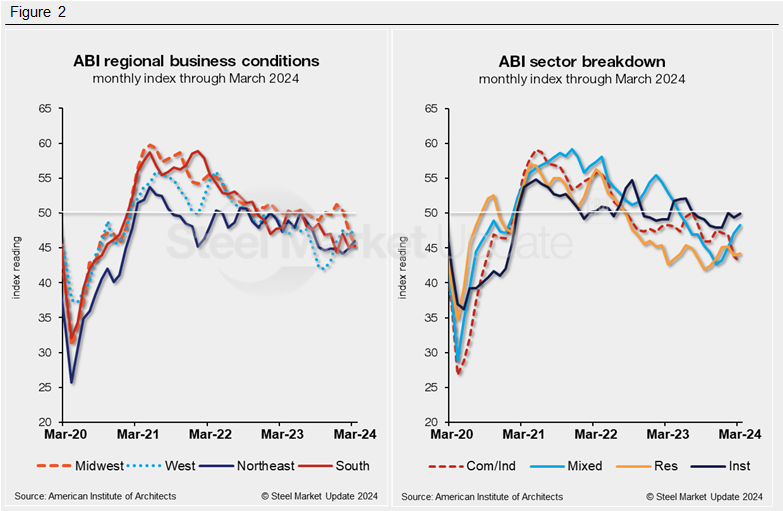Analysis
April 29, 2024
Leading nonres indicator falls to more than three-year low
Written by Laura Miller
An important economic indicator for the nonresidential construction industry declined in March to its lowest point in more than three years.
The American Institute of Architects (AIA) reported that the Architectural Billings Index (ABI) registered 43.6 in March, down from 49.5 in February and 50.4 in March 2023. A lower ABI was last seen in December 2020 when the index hit 42.3.

The ABI, a diffusion index from AIA and Deltek, typically leads activity in the nonresidential construction industry by 9-12 months. Any score above 50 indicates an increase in architectural billings, while a score below 50 indicates a decrease.
With the index last rising above 50 in January 2023, March “marked the 14th consecutive month of declining billings at firms as inflation, supply-chain issues, and other economic challenges continue to affect business,” AIA said.
All regions of the US reported declining billings, but firms in the Midwest and South reported the softest business conditions.
AIA said billings declined at a faster clip at firms with a commercial/industrial specialization, while they were essentially flat at firms specializing in institutional design. The index reading for billings at mixed specialization firms rose for a fourth month.

The association, which represents architects and design professionals, reported that while there is interest in starting new projects, clients are hesitant to sign contracts. Still, most firms have an average backlog of 6.6 months, “so even with the ongoing soft patch, they still have work in the pipeline,” AIA added.






